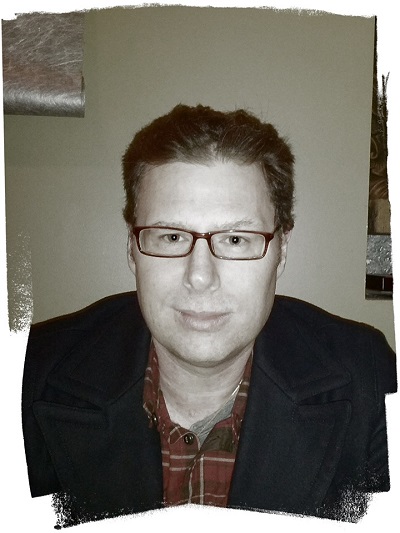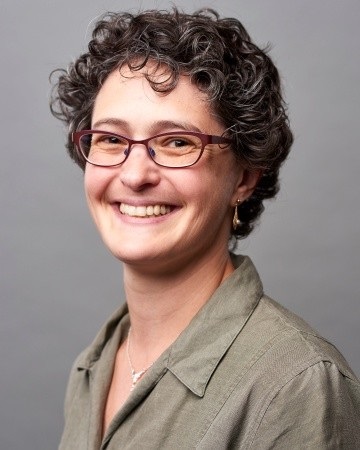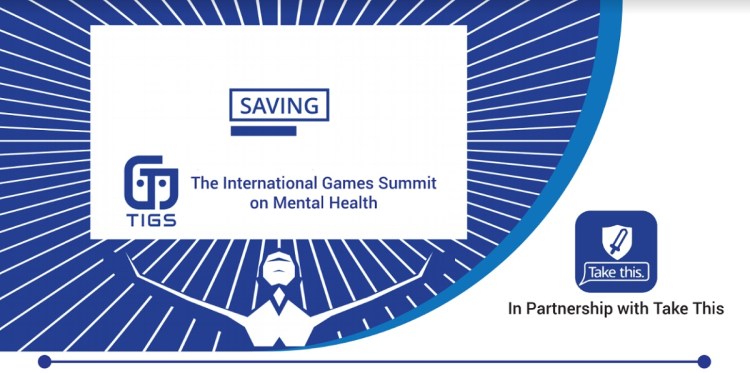The International Gaming Summit on Mental Health will take place on October 9-October 10 in Toronto, Canada, and it will be the first such event on mental health for game industry professionals.
It is based on the notion that game industry professionals are just like everyone else. And in any given year, one in five people in Canada and the United States will personally experience a mental health problem or illness. But games require a mental health conference of their own because the industry presents unique environmental challenges and opportunities. The event takes place on World Mental Health Day (October 10), acknowledging that growing awareness and recognition of mental health challenges is a good thing.
The idea started with Mark Chandler, a game industry veteran who has worked at studios such as Epic Games and previously organized the GamesCon event in Toronto. In an interview with GamesBeat, Chandler said that he “fell down my own hole” when it came to mental health. He said he was saved by his mother, got proper medical help, and then, about two years ago, he started talking about it publicly on Facebook and elsewhere as part of a healing process.

Above: Mark Chandler started the International Games Summit on Mental Health.
“It was through that sharing in the industry that people started reaching back to me, or reaching out to me and telling their stories, and that was how this came about,” Chandler said.
June 5th: The AI Audit in NYC
Join us next week in NYC to engage with top executive leaders, delving into strategies for auditing AI models to ensure fairness, optimal performance, and ethical compliance across diverse organizations. Secure your attendance for this exclusive invite-only event.
Chandler also started playing Hellblade: Senua’s Sacrifce, an award-winning game from Ninja Theory that debuted in August 2017. That game took four years for Ninja Theory to make, and the studio infused the hack-‘n’-slash fantasy game with a realistic depiction of a character suffering from psychosis — or seeing things in the world that aren’t real. Senua can’t tell whether the demons she sees with her eyes or the voices in her head are real or not. Ninja Theory received a grant from healthcare firm Wellcome Trust, and it consulted with Paul Fletcher, a professor at Cambridge University who was a leading expert in psychosis. He became an adviser to the studio as it made the game.
Chander contacted Fletcher, who agreed to be on the advisory board for a conference on mental health and games. Others who joined included Eve Crevoshay, the executive director of gaming mental health nonprofit Take This; Kate Edwards, the executive director of the Global Game Jam; and Mike Wilson, a founding partner at Devolver Digital.

Above: Eve Crevoshay is executive director of Take This.
Chandler said the event will start small and try to develop a strong gathering over time. The first event will focus on mental health in games, mental health in the work force, and mental health in online interaction and community. The event has seed funding from anonymous donors, and it will be held at the Design Exchange in Toronto. Attendees will pay $100 Canadian.
Speakers will be announced later, but topics will include how to protect employees and support them, how to talk openly about mental health struggles, and tips for survival. Crevoshay said the mission of the event lines up well with Take This’ own mission.
Chandler said that he had candid conversations with Wilson about mental health. On Facebook and in interviews, Wilson is supportive of bringing the issues out into the open.
“We had several developers hospitalized over a couple of years while making their games, or just after, from the stress,” said Wilson in our interview in June. “I would kind of be a jerk if I didn’t say something about that. Again, most of the people that benefit from that, I don’t feel like we ever hear from them. It’s just this ripple out there that’s happening. Somebody saw something they needed to see that day. With all the garbage coming at us every day, all the reasons to be depressed, I think it’s important to talk about it.”
Chandler said, “We just somewhat naturally gravitated toward each other. And I had already come up with this idea for doing this event. And he was fully behind it. And he has just been there for me always.”
The conversations led to more, and that led to the event taking shape.
“I knew this was really in line with what we’re concerned about at Take This,” said Crevoshay. “We are talking about the exact same things. It was really exciting to me to hear somebody who’s so passionate and connected and kind self-aware about their own experience. And so it seemed like a really fantastic opportunity for us to, to join forces.”
Take This has been able to bring its organizational capacity to bear as well as its own network of people. It recently released a white paper on the state of mental health in games.
“Our goal is to come out of the conference with some very specific action points and how to research the points of change in the industry,” Crevoshay said.
Chandler hopes to gather a diverse set of people and bring them all together and come up with a kind of blueprint for companies and professionals in the industry to deal with mental health in the workplace, as well as for how to deal with mental health for gamers.
“It’s really important to gather people together in the same place and brainstorm,” Chandler said. “We’re going to have game industry people sitting on the same couch as somebody from the mental health profession, and they’re going to be able to have a conversation.”
Chandler has begun doing podcasts with people like Wilson in the industry, where they talk about the personal challenges and ways to help. Chander is also seeking more sponsors to help with the event.
“It is such a compelling topic. It is so important. It is so under-addressed,” Chandler said. People are begging for spaces to talk about mental health in normalized, productive, solution-oriented ways.”


